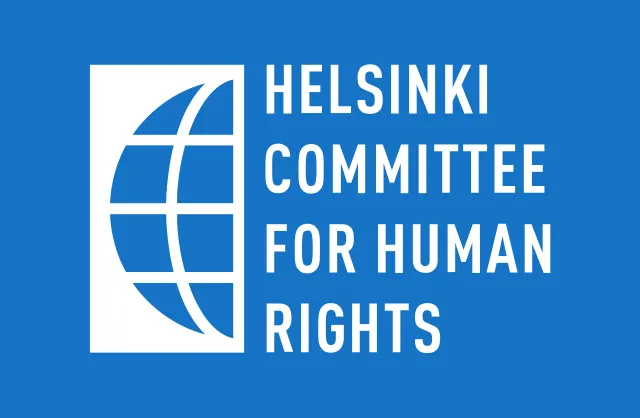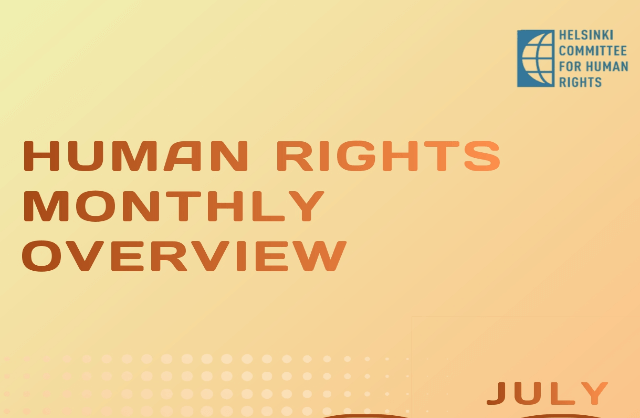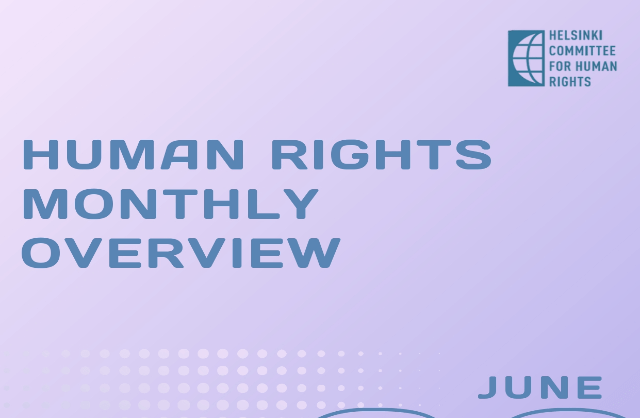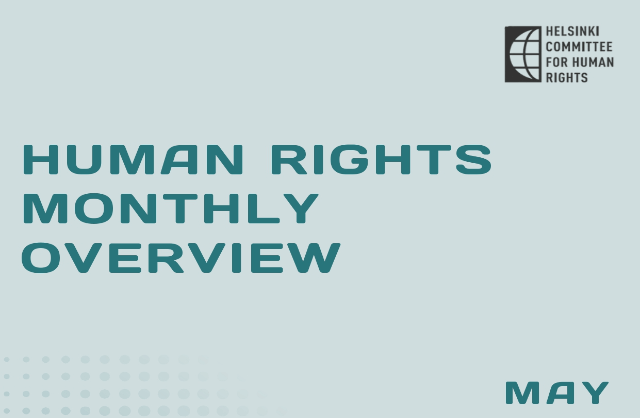The situation at the border crossings Gevgelija and Kumanovo for the period of October, 2017
November 10, 2017

Monthly report for October, 2017 on the situation at the border crossings Gevgelija and Kumanovo includes the following topics: Available facilities and conditions at the camp, Institutional treatment and irregular migration.
Gevgelija
Over the course of the entire month, once again increased frequency of larger groups who were caught by the police down illegal roads, or were found in smugglers’ vehicles was observed. By origin, most of the people caught were Pakistanis, Iranians, Syrians and Algerians. The conditions and the situation in the camp are more or less the same and mainly peaceful, with only 3 refugees accommodated in the camp over the entire month.
Available facilities and conditions
At the start of the month, the number of refugees in the camp was relatively low, i.e. only 5 refugees were accommodated — a three-member family originating from Afghanistan, one juvenile from Pakistan and one juvenile from Syria.
The refugees are provided with regular access to healthcare, in case they need it. They are also allowed to go on walks in Gevgelija, if they ask.
At the start of the month, representatives of the UNHCR Office from Skopje paid a visit to the camp.
Mid-month, a new contingent of police officers from Hungary arrived in the camp.
Over the course of the month, gynecological check-ups were provided to the women in the camp, and they are also regularly provided with adequate healthcare.
Institutional treatment
In the course of this month, a total of 118 refugees were caught by the police on the territory of the Republic of Macedonia who were soon taken back to Greece.
There is concern over a case of a juvenile originating from Pakistan whose custodian was the Ministry of Labour and Social Policy and who fled the camp at the very beginning of the month and got lost without a trace.
On 03.10.2017, two refugees originating from Iraq were brought to the camp. There they were questioned by the security services and had their personal documents and mobile phones searched. The Red Cross provided them with food and water and they were transported to Greek territory shortly after. On the next day, the police brought 3 refugees of Kurdish origin from Turkey in the camp who had been caught in the vicinity of Dojran. They also had their personal documents and mobile phones searched. Several hours later they were transported to Greek territory.
Over the course of the month, the discovering of larger groups of refugees, who were caught in smugglers’ vehicles or down illegal roads in an attempt to transit through the country, continued. Consequently, such larger groups were caught in 8 occasions. The lowest number of refugees in a group was 5 people, while the largest group consisted of as many as 23 refugees. Among them, there were groups originating from Pakistan, Afghanistan, Algeria, Syria, as well as Kurds from Iran. According to the testimonies of some of the refugees from the group, they had paid the smugglers as much as 6 thousand EUR. They were all individually provided with humanitarian aid by the Red Cross, and there were mainly no people with injuries in need of medical aid among them, apart from those who were exhausted and famished from the long travel. Nearly all groups consisted of adult males, and only in one case there were also juveniles in the group. The groups were adequately registered and profiled in the camp by the police, whereby they were all transported to Greece, on the same day when they were found. Only in two cases, two refugees from two groups (two from each group) were held and were taken to a police station to give statements for the purposes of the proceedings on smuggling.
On 07.10.2017, one person originating from Pakistan was brought to the camp. The person was questioned by the police, and was given adequate humanitarian aid by the Red Cross, along with food, water and warm clothes. After the questioning he was accommodated in the camp in a separate container. One week later, the person fled the camp, whereby the police caught him and immediately transported him to Greek territory.
A peculiar case took place at the bus station in Gegelija, when a woman originating from Cuba was detained by the police and brought to the camp. She had been travelling from Belgrade to Greece, but it remains unknown why the police brought her to the camp. After a short while, she was transported from the camp to the police station in Gevgelija, in order for the case to be clarified.
On 16.10.2017, the person originating from Syria who was accommodated in the camp, left the camp at his own will and asked from the police to be transported to Greece. Consequently, the three-member family originating from Afghanistan are the only people left in the camp.
On 19, one refugee originating from Pakistan, who had been staying in Greece for 14 months and had submitted asylum request, was brought to the camp. After the police registered him, he was sent back to Greek territory. On the same day, three refugees originating from Iran were brought, who were also voluntarily coming back from Serbia. On the next day two refugees were brought, a father and daughter originating from Afghanistan, who had been staying in Belgrade, but were voluntarily going back to Greece.
On two occasions over the course of the month, Albanian citizens who had illegally crossed the border were brought to the camp, and after they were registered in the camp they were transported to the police station for further proceedings.
Kumanovo
In the course of October, the decrease in the frequency of refugees moving in this region continued. The number of refugees during the entire month did not exceed 25, and the cases of refugees voluntarily coming back from Serbia and asking to be transported to Greece were more frequent.
Available facilities and conditions
At the start of the month there were 23 refugees in the camp, 16 of whom are considered to be registered, while 7 unregistered. Among them there are refugees originating from Algeria, Afghanistan, Pakistan, Libya and Palestine. Most of them were men, with the exception of two women who were accommodated there for only a brief period of time. In the course of the month there were also 5 unaccompanied juveniles. By the end of the month, the number of refugees dropped to about 15, after several people left the camp, and several new refugees arrived.
The camp hygiene is at a satisfactory level. In case of need, the refugees are provided with healthcare services and interventions. For example, one person in the camp was given treatment because he was bitten by a dog, and several of the refugees who arrived had the injuries on their legs re-dressed.
Creative and educational workshops for the refugees, where there is organized language learning, creative expression and social games are held in the camp
In order to work with the juveniles in the camp, the Ministry of Labour and Social Policy has provided a psychologist and an education specialist.
Institutional treatment
Several of the refugees in the camp wanted to have the asylum procedure clarified to them. After they obtained the necessary information, they were invited for a talk at the Asylum Department under the Ministry of Interior, where they stated that they had given up on the procedure, due to family reasons. Furthermore, representatives from the Asylum Department paid a visit to the camp in order to explain the asylum procedure to two refugees originating from Pakistan, and two refugees from Algeria. Out of them, the two refugees originating from Algeria expressed intention to seek asylum. One of them was transported to the Center for Asylum Seeker in Vizbegovo a few days later, while the other one withdrew his request.
On 04.10.2017, 6 new refugees i.e. two families, arrived to the camp. They were sheltered in the camp after the teams of the Red Cross, upon information obtained from UNHCR intercepted the criminals in the vicinity of the border zone. They had previously been in Preshevo, Serbia, and in their statements they complained of the treatment by the police in Serbia, which destroyed their documents for accommodation in Preshevo and then sent them back to Macedonian territory. From the very beginning they said they wanted to go back to Greece, a wish that was granted to them on 09.10.2017. The transport was organized by the police and the Red Cross.
In most of the cases, the refugees who arrive are admitted to the camp. Yet, in one case, five refugees arrived who were not allowed to enter.
A refugee originating from Syria also arrived to the camp, and was temporarily accommodated there. According to his testimony, he spent some time in Preshevo, Serbia, but expressed desire to go back to Greece.
On 11.10.2017, one of the unaccompanied juveniles originating from Afghanistan left the camp. Where he has headed to is unknown.
On 14.10.2017, one person originating from Pakistan arrived to the camp, who was provided with food and a medical check-up, but was not allowed to stay longer for unknown reasons. After a brief stay, one-hour stay in the camp, the person left the camp and headed for Serbia. On the next day, two persons originating from Syria were accommodated in the camp, one of whom was an unaccompanied juvenile. Both of them had returned from Serbia. In the interview made with the juvenile person, he stated that his family was in Turkey but that he did not want to stay there, which is why he had made several attempts to reach the Western countries. He only managed to reach Slovenia once, but then he was sent back on several occasions. Then the person complained that he had been beaten by the Croatian and the Serbian police.
On 17.10.2017, in the course of the night 6 refugees left the camp, most probably heading for Greece. Thus the number of refugees accommodated in the camp dropped to 8, 6 of whom are registered, and 2 unregistered. On the next day, on the other hand, 4 refugees originating from Pakistan and Afghanistan arrived to the camp, who were accommodated in the camp. They had returned from Serbia, and their wish was to voluntarily go back to Greece. Together with a father and daughter originating from Afghanistan who had been staying in Serbia for a longer period of time and returned to Macedonia voluntarily, they will be transported to Greece.
On 25.10.2017, 13 refugees originating from Pakistan were brought to the camp, who had been intercepted by the Red Cross. The refugees had visible traces of violence, and according to their statements, they had been beaten by the Serbian police before they were sent back to Macedonia. They were provided with medical and humanitarian aid in the camp, and were admitted for accommodation. Immediately, during the next night, 8 of them left the camp. The next morning, 5 refugees originating from Afghanistan and Iraq arrived to the camp. They were all admitted to the camp and provided with humanitarian aid. According to their testimonies, they had stayed in Serbia, where they had been deported from, for about 9 months. In about 1 hour, they left the camp and headed for Greece.
The situation in the reception centers in the Republic of Macedonia
The number of refugees in the reception centers in the Republic of Macedonia is unavailable to the Helsinki Committee for Human Rights.
Irregular migration
Over the course of this month, the Ministry of Interior registered 3 criminal and legal events related to refugees. The first event was registered on 08.10.2017, when a police officer found a vehicle with Skopje registration plates in the vicinity of the village of Udovo, Valandovo, with 14 refugees originating from Pakistan in it. The vehicle had been abandoned by the driver. The public prosecutor was called, and the refugees were taken to the Refugee Reception Center for further proceeding. The second case took place on 16.10.2017, when police officers from a police station from the border surveillance station Sopot noticed an old vehicle that 15 refugees emerged from, while the driver immediately fled. The refugees, originating from Syria and Pakistan, were transported to the Reception Shelter Center Gevgelija, and the police is working on clarifying the case. The last registered case took place on 23.10.2017 when on the motorway Gevgelija – Skopje, in the vicinity of the village of Prdejci, police officers tried to stop a cargo vehicle. The vehicle did not stop immediately, but was stopped at the entrance to Negotino. 10 refugees originating from Pakistan (7) and Syria (3) were discovered in it, and the driver was detained.


